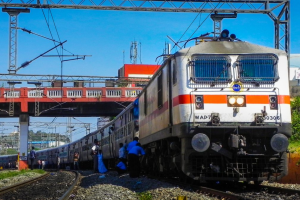A UN expert on Tuesday warned of a possible cover-up of human rights violations in Myanmar following the government’s decision to cut off mobile internet services in an area where an ethnic-minority guerrilla group is active.
On June 20, Myanmar’s Ministry of Transport and Communications ordered all mobile providers to temporarily suspend services to nine towns in the states of Rakhine and Chin, reports Efe news.
Advertisement
The authorities defended the decision citing “disturbance of the peace” and said that the internet services were being used to coordinate illegal activities in that area, where clashes between the country’s military and the Arakan Army, a Rakhine-based insurgent group, have been frequent since 2018.
“I fear for all civilians there, cut off and without the necessary means to communicate with people inside and outside the area,” the UN’s special rapporteur on the human rights situation in Myanmar, Yanghee Lee, said in a statement.
Around 35,000 civilians have been displaced due to violence and dozens have been killed in indiscriminate attacks by both sides, according to the UN.
In the same area, over 700,000 members of the ethnic Muslim Rohingya minority fled to Bangladesh following a massive operation by the Myanmar army in 2017, which the UN has described as a “textbook example” of ethnic cleansing and “intentional genocide”.
The UN expert said that blackout coincides with reports of a “clearance operation” by the army, “which, we all know by now, can be a cover for committing gross human rights violations against the civilian population”.
The Arakan Army, one of several armed rebel groups in the Southeast Asian country, was formed in 2009 by a handful of students of the Rakhine ethnic group – which is predominantly Buddhist, like 90 per cent of Myanmar’s population – and currently has some 7,000 fighters among its ranks.










